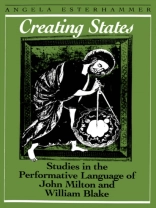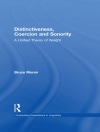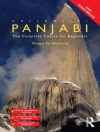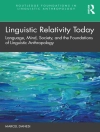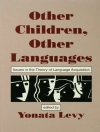Although the concept of the performative has influenced literary theory in numerous ways, this book represents one of the first full-length studies of performative language in literary texts. Creating States examines the visionary poetry of John Milton and William Blake, using a critical approach based on principles of speech-act theory as articulated by J.L. Austin, John Searle, and Emile Benveniste. Angela Esterhammer proposes a new way of understanding the relationship between these two poets, while at the same time evaluating the role of speech-act philosophy in the reading of visionary poetry and Romantic literature.
Esterhammer distinguishes between the ”sociopolitical performative, ” the speech act which is defined by a societal context and derives power from institutional authority, and the `phenomenological performative, ” language which is invested with the power to posit or create because of the individual will and consciousness of the speaker.
Analysing texts such as The Reason of Church-Government, Paradise Lost, The Marriage of Heaven and Hell, and Jerusalem, Esterhammer traces the parallel evolution of Milton and Blake from writers of political and anti-prelatical tracts to poets who, having failed in their attempts to alter historical circumstances through a direct address to their contemporaries, reaffirm their faith in individual visionary consciousness and the creative word – while continuing to use the forms of a socially or politically performative language.
